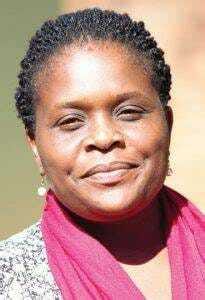
Malawi: Women’s Coalition Against Cancer ( WOCACA), in collaboration with Movendi International, has called for increased awareness of the dangers and negative effects of alcohol consumption, writes Watipaso Mzungu.
WOCACA and Movendi International issued the call in a joint statement in honour of World Alcohol-Free Day, which falls on October 2 each year.
The two organisations have joined global advocates in advising the public to say NO to alcohol and are educating the world about its dangers.
On this day, advocates, individuals, and communities all over the world organise activities, take over social media, create alcohol-free environments, host events, and spread sober inspiration in their communities through small and large actions.
WOCACA is a non-profit, non-governmental cancer organisation led by women and girls in Malawi.
The organisation works to ensure and advocate for equitable access to Sexual and Reproductive Health and Rights (SRHR), cancer, and other Non-Communicable Diseases (NCDs) services for rural women and girls.
Movendi International, on the other hand, is a global social movement with a vision of a life for all human beings free to live to their full potential and free from the harm caused by alcohol and other drugs. It envisions a world of peace, democracy, and justice in which free and healthy citizens contribute at all levels of society.
WOCACA Executive Director Maud Mwakasungula said in an interview on Sunday night that efforts to raise awareness in Malawi have been limited and that there is a significant urgent public health need.
She said: "Raising awareness of the health and social problems caused by the harmful use of alcohol for individuals and society at large is critical, including ensuring support for effective alcohol policies, providing accessible and affordable treatment for people with alcohol-use disorders and implementing screening, the need for intervention programmes in health services for hazardous and harmful drinking; and potential awareness strategies include alcohol bottle labelling."
She stated that her organisation, in collaboration with Movendi International, is working hard to promote information exchange, best practices, and networking with other organisations focusing on drug policy reforms, tobacco control, and alcohol abuse as risk factors for various cancers.
Mwakasungula went on to say that WOCACA is working to promote healthy eating by increasing public awareness, education, and advocacy for healthy foods and lifestyles.
Alcohol, according to World Health Organization statistics, is a toxic and psychoactive substance with addictive properties.
Alcoholic beverages are a common part of the social landscape for many people in today's societies.
This is especially true in social environments with high visibility and societal influence, both nationally and internationally, where alcohol is frequently consumed while socialising.
In this context, it is easy to overlook or dismiss the health and social harm caused or exacerbated by alcohol.
Alcohol consumption causes three million deaths worldwide each year, as well as disabilities and poor health for millions of people.
Overall, harmful alcohol use accounts for 5.1 per cent of the global disease burden.
In males and females, harmful alcohol use accounts for 7.1 per cent and 2.2 per cent of the global disease burden, respectively.
Alcohol is the leading cause of premature death and disability among people aged 15 to 49, accounting for 10% of all deaths in this age group. Aside from the health consequences, harmful alcohol use causes significant social and economic losses to individuals and society as a whole.
Furthermore, since the 1980s, there has been evidence of a link between cancer and alcohol use.
Since 1988, the International Agency for Research on Cancer (IARC), the WHO's research arm, has classified alcohol as a class one carcinogen. Cancers of the oral cavity, pharynx, larynx, oesophagus, colorectum, liver (hepatocellular carcinoma), and female breast are caused by alcohol consumption."
According to the World Cancer Report 2020, alcohol consumption was one of the leading risk factors for cancer development and death worldwide in 2016. In 2016, alcohol was responsible for an estimated 376,200 cancer deaths, accounting for 4.2 per cent of all cancer deaths worldwide.
In 2016, alcohol was responsible for 10.3 million cancer disability-adjusted life years lost, accounting for 4.2 per cent of all cancer disability-adjusted life years lost worldwide.